I have always had an awareness of the College Hall of Fame since I was a child. I even went to the version that was in South Bend was I was seven years old and on my first visit to Notre Dame. It was perfectly fine. I had never put much more thought into it other than I thought it was cool to have this faux football field outside of the place. It was also one of the first bonding times with just me and my dad, so the place will hold a special place in my heart.
The only other time I ever thought about the Hall of Fame is thinking about its move from South Bend to its current location in Atlanta. I thought it was sad I couldn’t get a chance to see it when going out to South Bend. However, I also never made an effort to see it during the time it was open when I was there as an undergrad, so I understood the move.
The next time I really sat down and thought about the Hall of Fame was two years ago. I was taking a solo trip with my baby daughter at a restaurant to give my then fiancé some time to herself and rest. I was reading some stories on Reddit while my little one was sleeping and I was waiting for my food and saw this article about Nick Chubb, who had just recently finished his time at Georgia and broke Herschel Walker’s school rushing record, couldn’t be eligible for the College Football Hall of Fame. Some of the reasoning made sense to me, and some did not. It made sense to me that a Hall of Fame should honor the players who were at the top of the sport during their time, and Chubb both did and didn’t do that. He has the numbers of a potential case, but he was never recognized for one season.
Unrelated but to the Chubb case, his statistically best season was 2014 and that year Melvin Gordon and Tevin Coleman were unanimous All-Americans with only James Conner the other RB who got a vote across all selectors. It’s bad luck for Chubb sure but those are the breaks.
Welcome to the College Football Hall of Fame – @NDFootball legend Rocket Ismail (@iamrocketismail)! pic.twitter.com/I6YI19CQ5s
— Football Foundation (@NFFNetwork) December 11, 2019
Then I saw the results of last year’s class. I was floored when I first heard the news that Rocket made the College Football Hall of Fame. The shock didn’t fall under his induction, but in the fact that it took this long to get him enshrined there. Rocket was a National Champion, a Consensus All-American, Walter Camp Award Winner, and Heisman Runner Up. He has iconic plays in essentially winning the 1989 Michigan game and was part of one of the best stretches in modern Notre Dame history. How was it almost twenty years since his last snap of college football that he was getting his proper recognition?
Notre Dame is currently the school with the most representatives in the Hall of Fame with Rocket becoming the 47th player to enter the Hall of Fame along with six coaches. This number could easily increase as of this writing as Todd Lyght (87-90) and Aaron Taylor (90-93) are both on the 2020 ballot. This got me thinking about the next generation of great Notre Dame players in the 21st Century and how their potential cases could be made. I first went to the HoF’s website to gain more context of their qualifications;
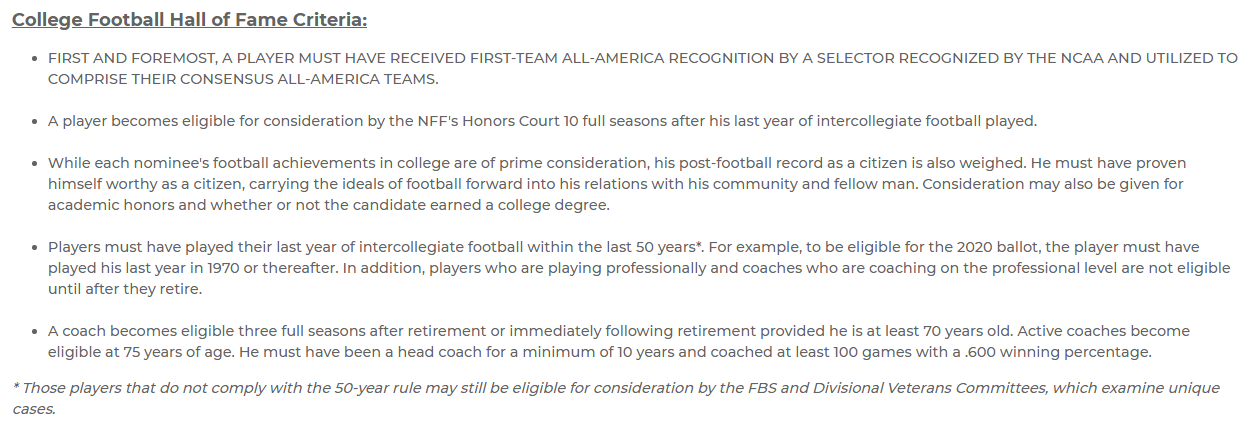
While these qualifications seem to have their gaps, as noted in the Chubb article, this seems pretty clear for a starting point. Considering the run of Notre Dame has had its fair share of ups and downs I could pretty easily pinpoint which seasons to look at to see who, if anyone, meets the criteria. I found eleven different players since 2000 who are technically eligible for induction into the College Football Hall of Fame either now or in the future.
My goal for this series is to go through these players and comb-over their case and take a look at a recent inductee or nominee, to see how the comparison holds up. The next post in this series, before I get into those eleven players, will take a look at the players who were great at Notre Dame, but due to the restrictions of eligibility, will never be in the Hall.

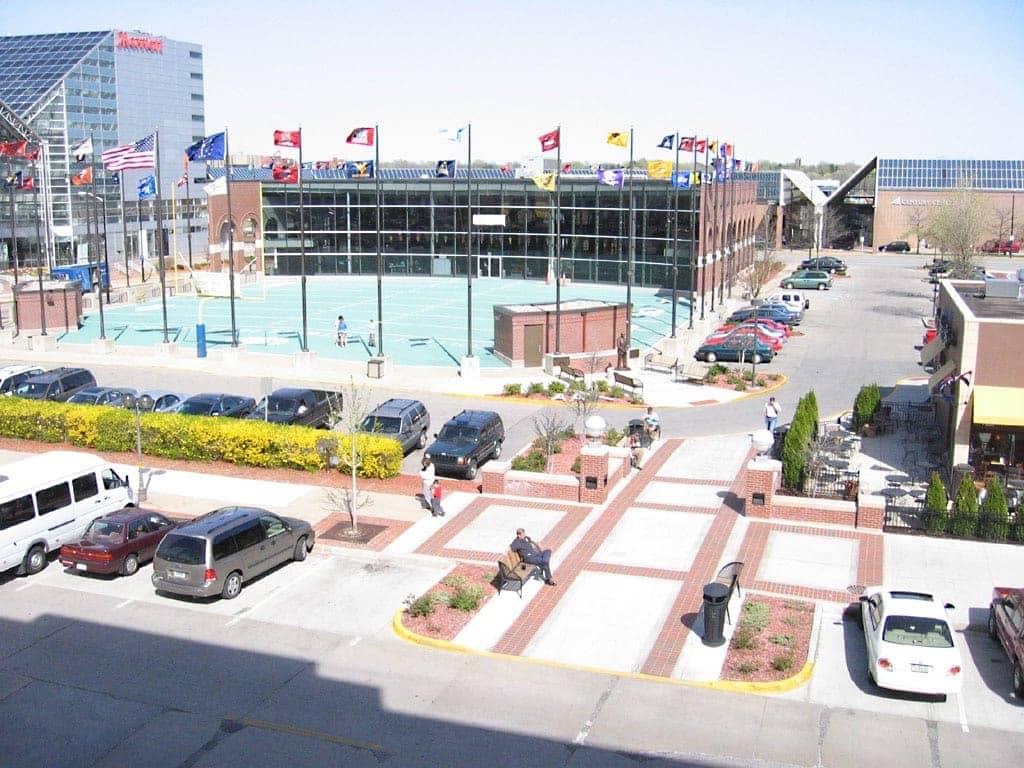

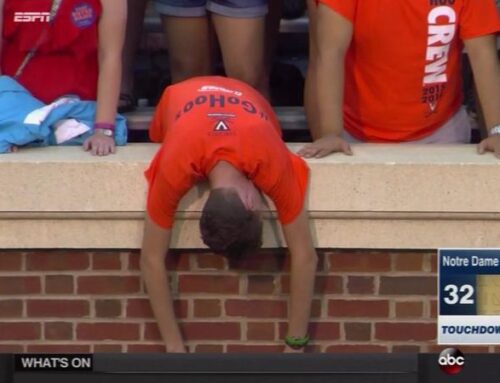
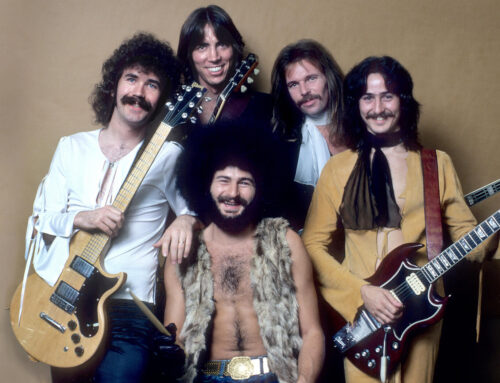
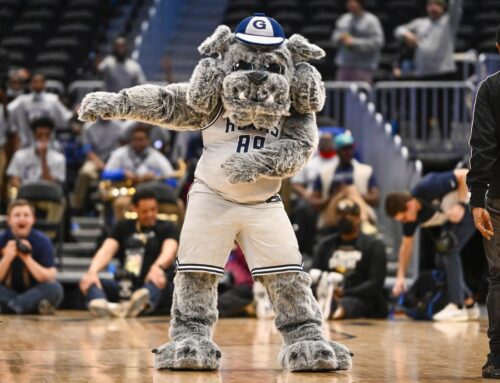
The All-America thing is ridiculous. Because of it, Joe Montana, a national championship QB in ’77 and author of one of the most famous comebacks in the sport’s history the following year, can never make the CFB Hall of Fame (and I’m sure you’ll get to him in your post about players who can’t make it). It’s just so silly that you can be an all-time type player but if you happen to get stuck in the year that someone like Troy Smith or Reggie Bush or whoever hogs all the All-America votes then that’s it for you and the Hall.